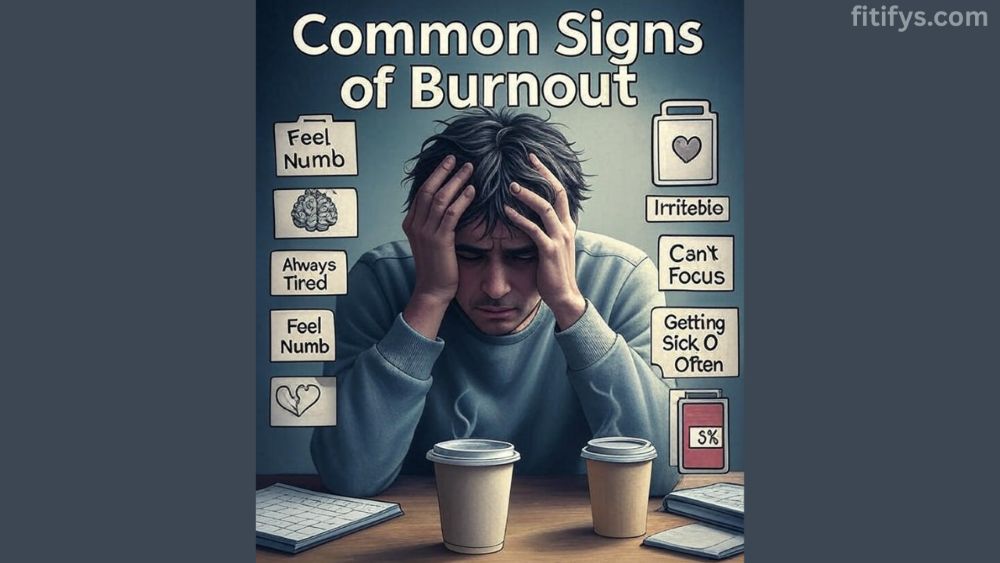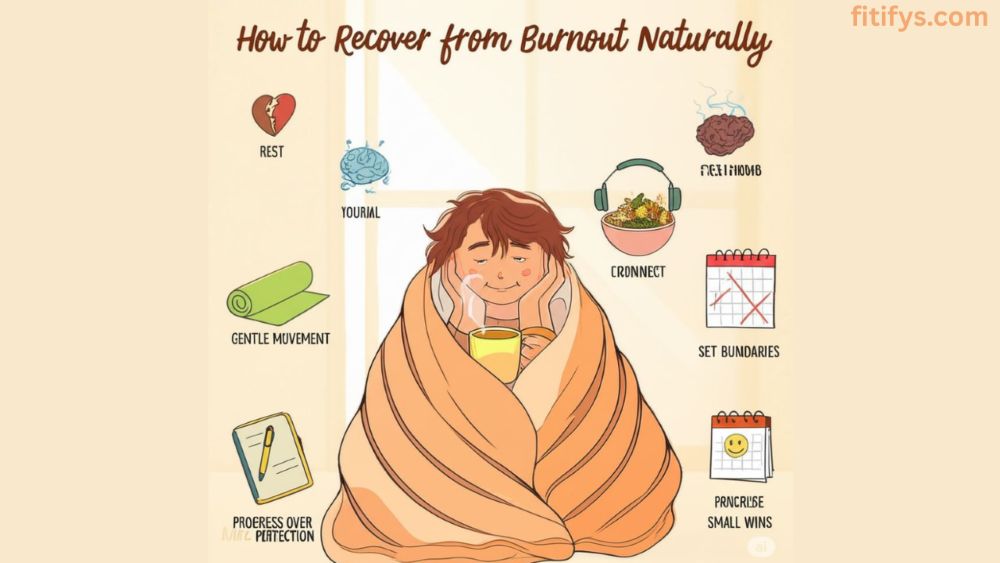Signs of Burnout and How to Recover Naturally
Burnout isn’t just being tired. It’s that deep, soul-level exhaustion that makes everything — even the small stuff — feel like climbing a mountain. You might brush it off as “just a rough week” or think it’ll get better with the weekend. But if you’re constantly running on empty, burnout could be knocking at your door.
Let’s talk about how to spot the signs early and — just as important — how to start healing naturally.
What Is Burnout, Really?
Burnout happens when stress builds up over time without enough rest, support, or balance to keep it in check. It’s most common with work, but it can come from anything that drains you — parenting, caregiving, even emotional stress from relationships.
And it doesn’t mean you’re weak. It means you’ve been strong for too long without a break.
Common Signs of Burnout
You don’t wake up one day completely burned out. It sneaks up on you. Here’s what to watch for:

1. You’re Always Tired — Even After good Sleep
physically tired, but a mentally and emotionally worn out. You wake up, the day, and still feel drained.
2. You Feel Numb
Things that used to a excite or matters to you feel flat
3. You are More Irritable Than Usual
Little things set you off.feel overwhelmed by things that wouldn’t normally bother you.
4. Trouble Focusing
You reread the same line two times, forget simple tasks, or space out durings conversations.
5. You Get Sick More Often
Burnout weakens your immune system. If you’re catching every cold or dealing with constant headaches or stomach issues, your body might be waving a red flag.
Real Talk: A Reader’s Story
One of our readers, Jenna, shared how she didn’t realize she was burned out until she found herself crying in her car before work — not once, but three days in a row. “I thought I was just tired,” she said. “But a when I couldn’t find joy in anything started dreading even weekends,
How to Recover from Burnout Naturally
If any of those signs sound familiar, don’t panic. Recovery is possible. It just takes some patience, intention, and giving yourself permission to slow down.
Here’s how to start:

1. Rest — and Not Just Sleep
Burnout recovery isn’t about just getting more sleep (though that helps). It’s about giving your mind and soul space to breathe.
Try this:
- Take a day off with no agenda.
- Say no to non-urgent plans.
- Do something unproductive on purpose (yes, really).
It’s okay to rest without “earning it.”
2. Reconnect With What Feeds You
Think about what brings you joy or makes you feel human again.
- Nature walks
- Art, music, or journaling
- Cooking without rushing
- Calling a friend just to laugh
These aren’t luxuries — they’re your fuel.
3. Move Your Body Gently
You don’t need a hardcore workout. In fact, during burnout, that can sometimes make you feel worse.
Instead, try:
- Yoga or stretching
- A slow walk outdoors
- Light dancing in your kitchen
Movement helps shift stuck energy and lifts your mood naturally.
4. Eat Foods That Nourish (Not Just Fill)
It’s tempting to reach for comfort food when you’re burned out, but your body needs real nourishment.
- Add more whole foods: leafy greens, berries, nuts, seeds
- Drink plenty of water
- Cut back on sugar and caffeine if they make you crash later
Think of food as a way to rebuild from the inside out.
5. Create Boundaries That Protect Your Energy
Burnout often comes from giving too much for too long. It’s time to draw some healthy lines.
- Say “no” without guilt
- Take breaks during the workday (yes, even short ones!)
- Unplug after work — your phone doesn’t need you 24/7
Every boundary you set is a step toward feeling like yourself again.
6. Talk It Out
You don’t have to carry burnout alone.
- Talk to a therapist or coach
- Open up to a trusted friend or family member
- Join a support group if that feels right
Saying “I’m not okay” is powerful. You’d be surprised how many people will say, “Me too.”
7. Let Go of Perfection
Sometimes burnout is fueled by feeling like you have to do it all — and do it perfectly. You don’t.
Here’s your permission slip to:
- Leave the laundry for tomorrow
- Ask for help
- Be messy, human, and enough — just as you are
8. Celebrate the Small Wins
Recovery takes time, and progress might feel slow. But every small win counts.
- You got out of bed today
- You said “no” to something draining
- You took a real break
That’s healing. Celebrate it.
Final Thoughts
Burnout isn’t a sign of failure. It’s your body and mind asking for care, rest, and change. The more gently you respond, the quicker you’ll start to feel like yourself again.
You don’t have to do it all. You just have to start. One small shift at a time.
FAQs
1. How long does it take to recover from burnout naturally?
It depends on how deep the burnout is. Some people start feeling better in a few weeks, others need a few months. The key is consistency, rest, and reducing the stress that caused the burnout in the first place.
2. Can burnout go away on its own?
Not usually. Ignoring burnout can make it worse. Natural recovery requires active rest, boundaries, and real lifestyle changes.
3. Should I quit my job if I’m burned out?
Not always. Sometimes small changes (like clearer boundaries or workload adjustments) can help. But if your job is the main source of burnout and there’s no room for change, it might be worth considering a bigger shift — ideally with a plan in place.
Need more support with burnout recovery and wellness routines?
Check out daily wellness tips and gentle fitness ideas at Fitifys.com — where we believe real self-care starts with small, kind steps.
Let me know if you’d like a printable “Burnout Recovery Checklist” or a matching email series to keep your readers engaged!







